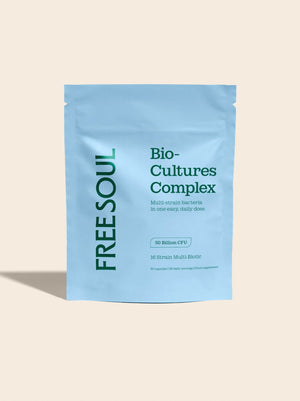Is there such a thing as being too healthy? Surely not. Surely, making sure we eat all the right foods with the right fats and the right nutritional value can’t be harmful in any way? It’s good to eat healthily, to ensure that our bodies are nourished. Eating is sustenance. Eating is instinctual. Eating is a part of human life and how we survive.
However, the proliferation of ‘clean-eating’ and the emergence of ‘diet culture’ also comes with disordered eating and eating disorders including a plethora of other health-related stigmas. Noticeably, the narrative surrounding nutrition tends to polarise foods by characterising them as ‘good’ and ‘bad’.
There is an increasing number of people who deliberately abstain from certain food groups despite having zero intolerance to them. Leading to a detached relationship with food. These are among some of the problems that have been unearthed.
Orthorexia Nervosa?
For some, in their quest to leading a healthy lifestyle may begin to choose increasingly restricted diets and develop an obsessive, perfectionistic and ultimately, unhealthy, relationship with eating the right foods.
This unhealthy relationship with food is called Orthorexia Nervosa (OS), a term coined by Dr Steven Bratman, MD, MPF, a Californian physician in 1996. And since, many medical professionals have accepted and explored the concept further. A growing number of health and nutrition experts believe that it may be possible to take a healthy diet too far. It is entirely possible that the notion of healthy eating can be taken to risky and harmful extremes.
The concept is based on an obsession with the ‘purity’ of foods. This may lead to deliberately leaving certain foods out of a typical diet. Eventually, avoiding so many food groups and/or meals that don’t meet a particular standard which, ironically, may lead to potential harm such as malnourishment.
Or, as a result, may lead to disordered eating and even so far as developing eating disorders. Other consequences of fixation on healthy food include diminishing other important dimensions of life. The desire and drive to only eat the ‘right’ foods and holding to specific dietary patterns may be perceived to be more important than relationships with family and friends, career goals and so on.
Signs/Symptoms
Some signs of ON may include –
- Obsessive concern and aggressive thoughts over foods concerning self and others
- Fixation on the purity and quality of food
- Validation from food choices and a sense of superiority over others due to food choices
- Rigidity in beliefs about ‘good’ and ‘bad’ food
- Increasing avoidance of foods or food groups despite no medical advice
Emotional symptoms that may indicate ON progressing into an eating disorder –
- Anxiety about food and food choices
- Guilt and self-punishment when deviating from a strict diet
- Satisfaction, esteem and fulfilment from eating “right” foods
- Fear of eating out because of the lack of full knowledge of how food is being prepared or exactly what’s in the meal
- Depression and mood swings due to the stress of non-compliance of strict diet
Treatment recommendations from Dr Steven Bratman
In an article written by Dr Steven Bratman in 1997, before ON was recognised in the field, he explores treatment recommendations for those that display symptoms of ON. Firstly, the acknowledgement of the problem is critical. In the cases where medical conditions appear, then medical intervention is necessary.
Treatment involves a restoration of balance and moderation starting with the education of the fundamental basics of proper nutrition. Education of nutrition does not mean dispelling theories of eating but bringing it back to the basics of eating enough protein, calories, vitamins and minerals necessary to maintain optimal health for the body.
Dr Steven Bratman advises that psychological factors that caused healthy eating to become an obsession should also be addressed. This may involve exploring issues surrounding self-esteem and perfectionism and other anxieties that the person with ON has been attempting to navigate solely through their relationship with food.
Recovery may include expansion of coping strategies and discovering interests outside of food and nutrition. This may help to balance the importance of food among other facets of life that are equally as important, making it a part of life rather than the centre of it all. This highlights the importance of all things in moderation and developing a healthy relationship with healthy food.
Debate surrounding ON
Some have argued that ON is Anorexia Nervosa in disguise as a socially acceptable way to be skinny. Though, the obsession with food with comes with ON is not about weight loss. This may still, however, cause physical harm.
A lack of nutrients and nutrition, as a whole, may lead to a plethora of health issues.
The takeaway
In the end, there is a fine line between being healthy and being too “healthy”. The ironic consequences of what usually begins as a quest for improved health is calamitous and can impair one’s body and lifestyle.
Especially during a time where diet culture is the norm, it’s an important time to ask yourself the following questions: Are you over-critical about to food you eat? How much time do you spend thinking about food? Do you stop yourself from eating certain food groups and why? Are you eating the right foods for you?
**At Free Soul, your wellbeing is our priority, and although we pride ourselves on our expertise in women's health and wellbeing, it is important to acknowledge the individuality of each person. Features published by Free Soul are not intended to treat, diagnose, cure or prevent any disease, or replace the advice of your GP. We always recommend consulting with a healthcare provider if you encounter any health concerns, and we’ll always be here to support you so you’re never alone on your journey.








